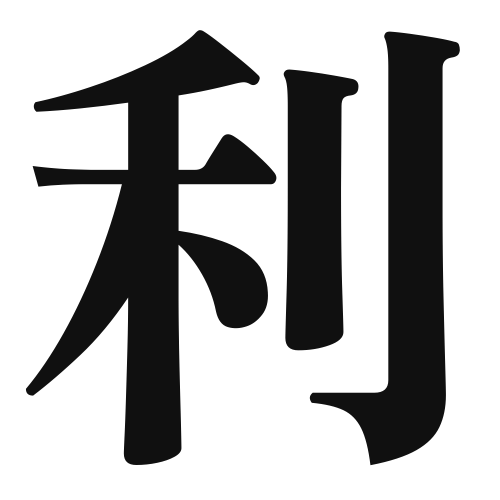1. Overview of Meaning
The kanji “利” (ri) primarily means “benefit” or “advantage.” It conveys the idea of something that is advantageous or profitable, often in a practical or economic sense.
2. Formation and Radical
Formation of the Kanji: The kanji “利” is a phonetic-ideographic character (形声文字). It combines the radical for “blade” (刂) on the left, which suggests sharpness or cutting, with the phonetic component “里” (ri) on the right, which contributes to its pronunciation.
Radical: The radical of “利” is 刂, which is related to cutting or sharpness, reinforcing the idea of something that can provide a clear advantage or benefit.
3. Examples of Usage
Common Words and Phrases: Some frequently used words that include “利” are:
- 利益 (りえき, rieki) – profit, benefit
- 利点 (りてん, riten) – advantage, merit
- 有利 (ゆうり, yūri) – advantageous
Example Sentences in Daily Conversation:
- この投資は大きな利益をもたらすでしょう。 (This investment will bring significant profits.)
- この製品には多くの利点があります。 (This product has many advantages.)
4. Synonyms and Antonyms
Similar Kanji: A similar kanji is “得” (とく, toku), which also means “gain” or “acquire,” but it emphasizes the act of obtaining something rather than the inherent advantage.
Antonyms: The kanji “損” (そん, son) means “loss” or “damage,” representing the opposite of “利” as it indicates a disadvantage or detriment.
5. Cultural and Historical Background
Relation to Japanese Culture: The concept of “利” is deeply embedded in Japanese culture, particularly in business and economics, where the pursuit of profit and advantage is often emphasized.
Proverbs and Idioms: One common saying is “得手に帆を揚げる” (to raise sails according to one’s strengths), which reflects the idea of leveraging one’s advantages for success.
